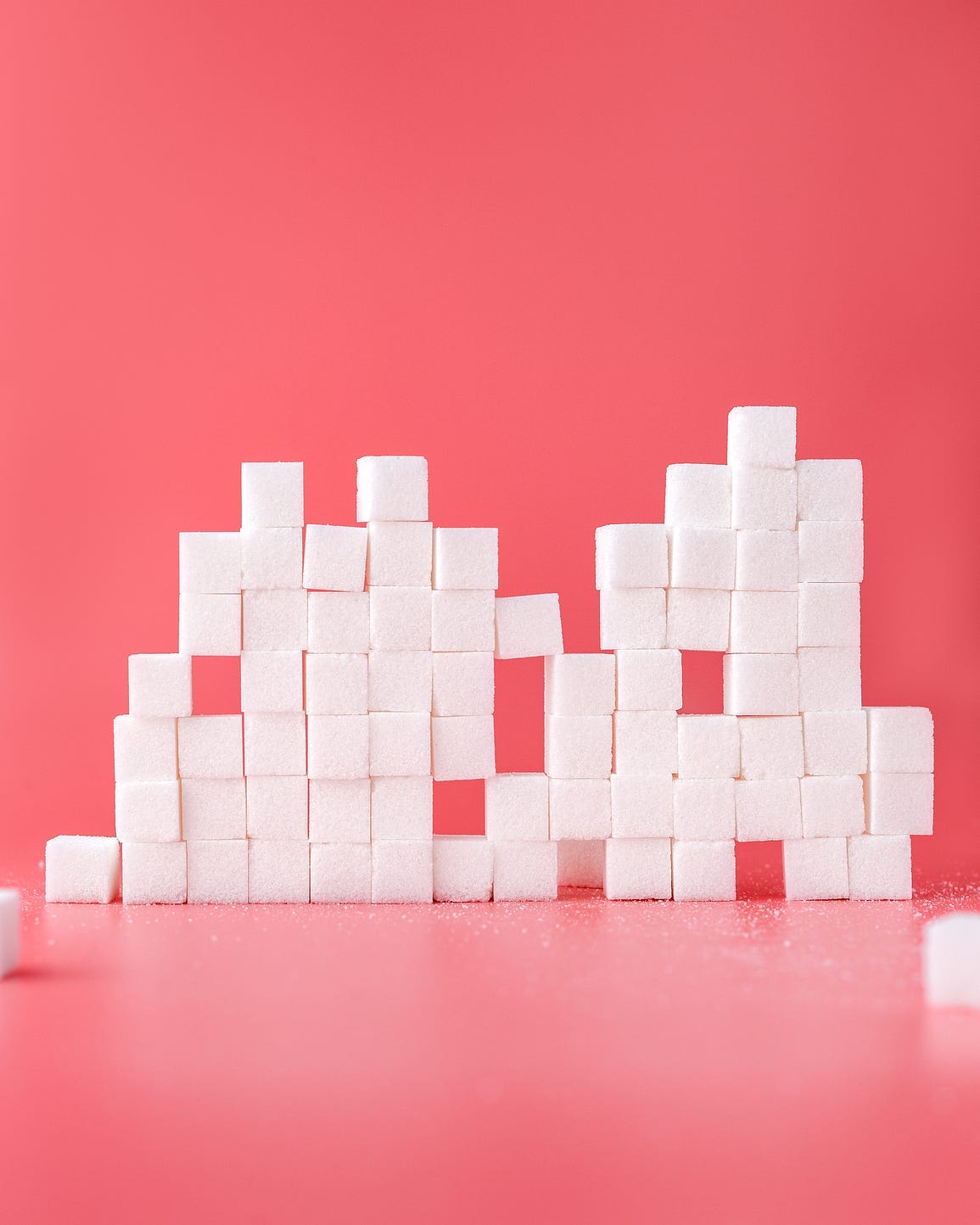The Consistent Use Of Artificial Sweeteners Is Just About Covering Up Another Problem We’re Facing.
And that’s the addiction that many humans have with wanting to eat something sweet.
It’s an interesting situation that we’ve gotten ourselves into, really. We consider glucose to be one of those “essential” nutrients that supports the energy generation process within every cell in the body, as it is taught in biochemistry classes that the Krebs cycle makes use of oxidative phosphorylation on acetyl-coenzyme A (Acetyl-CoA) to generate energy.
Acetyl-CoA, of course, can be derived from glucose — hence carbohydrates are considered “essential” nutrients for energy generation.
Of course, proponents of ketogenesis (also known as the “keto” diet) will argue that Acetyl-CoA can be derived from fats as well:
The Science Behind A Ketogenic Diet
We do know that we are being bombarded by a deluge of processed foods that are rich in carbohydrates. They’re our “comfort foods” - things that we may binge on when we’re stressed out. Such as ice cream, for instance: The marketing and advertising just will not let up.
And if we can derive sufficient energy from ketogenesis, then are carbohydrates really that essential for energy generation?
The problem is that carbohydrates tend to look more appealing and are better tasting. It is not so much an “essential” food from the scientific point of view as it is an “essential” food from the emotional comfort point of view.
Because let’s face it — we do get dopamine rushes from carbohydrate consumption, and they can be pretty addictive if left unchecked.
The Addiction Behind Achieving The Next Dopamine Release.
The idea behind a reward system is tied to the release of the neurotransmitter dopamine (DA) in our brains. As it is said in this research article about DA, However, it has been demonstrated that DA is involved in the hedonic component of reward. Several lines of evidence show that the receipt of rewards evokes an increase in DA activity; however numerou…
It’s very easy to wash down one entire tub of Ben & Jerry’s ice cream, for instance, while binge watching a Netflix series. It’s very easy to scarf down doughnuts because they’re so light. They’re not very filling, and we can whack in multiple doughnuts at a go — but at what cost to our health?
So of course, if we can develop alternative solutions to address that overconsumption of sugar, we might put ourselves in better shape. One of these alternatives revolves around the use of artificial sweeteners.
At least we get the sweet taste without the potential ramifications of diabetes, no?
Unfortunately not.
The World Health Organization has still warned against
the use of artificial sweeteners to control body weight or reduce the risk of noncommunicable diseases, saying that long-term use is not effective and could pose health risks.
Which begs the question: why is it that there must be something sweet there just to make us feel good?
If we’re going to use sugar or artificial sweeteners continuously, we’ll never be able to wean ourselves off the overconsumption of carbohydrates.
While we may think of artificial sweeteners as a substitute to sugar, the deeper level question that many of us will not want to answer is that of: Why do we even need to be consuming that much sugar in the first place?
If it’s an emotional problem that we’re facing, then we do have to deal with the root of the emotional problem.
Even I fall victim to it sometimes — I will attempt to justify sweet snacks as a coping mechanism with my stress workload on some days.
But is substituting artificial sweeteners any better?
Not necessarily, because we have too many carbohydrate options out there. Even savoury foods such as croissants and pasta are loaded with carbohydrates.
What’s the use of chowing down on a pasta dish and then drinking diet Coke or Pepsi (flavored with aspartame) instead of real Coke? We’d already have consumed quite a fair bit of carbohydrates from that pasta itself, without even factoring in the soft drink!
So we definitely do have to work out the carbohydrates that we’re consuming on a daily basis, and work towards reducing that before even considering artificial sweeteners.
We Live In A World Drugged Out On Sugar, And We’re Silently Paying The Price For It.
We face an endless barrage of sugar at every turn. The doughnuts in that picture look great, don’t they? What about the sugar in ice cream? Other cakes and pastries? Chocolate bars? Fruits? Cereals? Juices and soft drinks? Wherever we go, we are bombarded by it, much like how scantily dressed women are seen in many different advertisements today.
I can consider myself lucky that raising my daily dietary protein intake has cut down the tendency for me to go after carbohydrates. I can’t say I’m completely immune to carbohydrate-laden foods and snacks, but I can safely say that I’m consuming much less carbohydrates than many other people out there.
So while I’m not following the “best” methods out there to stay healthy, I do believe in a form of moderation — eliminate “staple” carbohydrates such as rice and noodles most of the time, and only indulge in the sweet treats when out dating (dating calories are a relationship investment, unfortunately).
It’s not just about art
ficial sweeteners, but it’s about diagnosing the deeper problem that human society faces — and that is the overdependency that we have on carbohydrates to feed ourselves with!
Do feel free to share this article and hit the “subscribe” button to get more updates about the science concepts in nutrition and health, all deconstructed nicely for your convenient perusal!







